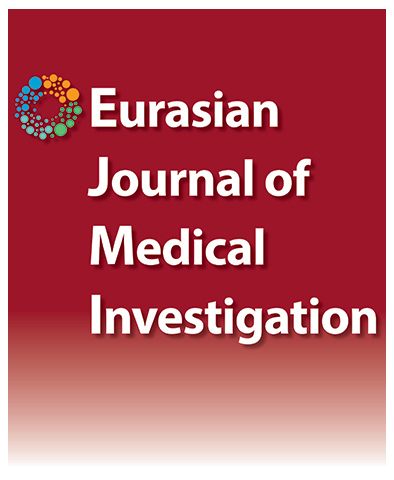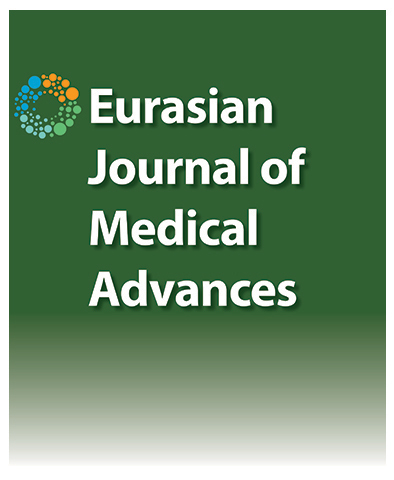Overview of Clinical, Pathological and Treatment Features of the Patients with Endometrium Cancer: A Single Center Study
Burak Andaç1, Sernaz Uzunoglu2, Bulent Erdogan2, Muhammet Bekir Hacioglu2, Ali Cem Yekdeş3, Cagla Yildiz4, Irfan Çiçin21Department of Endocrinology and Metabolism, Faculty of Medicine, Trakya University, Edirne, Türkiye2Department of Medical Oncology, Faculty of Medicine, Trakya University, Edirne, Türkiye
3Department of Public Health, Faculty of Medicine, Trakya University, Edirne, Türkiye
4Department of Internal Medicine, Faculty of Medicine, Trakya University, Edirne, Türkiye
Objectives: Endometrial cancer is the second most common gynecological cancer worldwide. Despite being usually diagnosed at an early stage with a better prognosis compared to other gynecological cancers, some cases can be aggressive. Obtaining data on independent prognostic factors correlated with survival and recurrence would be beneficial to control the disease and make informed systemic treatment decisions effectively. We aimed to review endometrial cancer's clinical and pathological features and determine the prognostic risk factors.
Methods: We conducted a retrospective study on 136 individuals with endometrial cancer who were followed up between 1997 and 2015. Prognostic factors with a p-value of less than 0.15 using the Long-rank test were included in multivariate analysis. Multivariate analysis was performed by the Cox regression test.
Results: Significant prognostic factors determining the overall survival in univariate analysis were disease stage, histological grade, age at diagnosis, histological type, lymph node metastasis, lymphatic and vascular invasion, depth of myometrial invasion, cervical stromal invasion, tumor diameter, the positivity of peritoneal cytology, and pre-op serum CA-125 levels. In multivariate analysis, advanced stage and high preoperative CA-125 levels were detected as factors reducing overall survival (p=0.012, p=0.005, respectively).
Conclusion: The two most important factors for endometrial cancer survival were stage and pre-op serum CA-125 level, independent of other parameters. As our study was retrospectively done with a limited number of patients, more extensive prospective, randomized studies with a larger number of patients are necessary to apply the information obtained from this study to our clinical practices.
Manuscript Language: English





